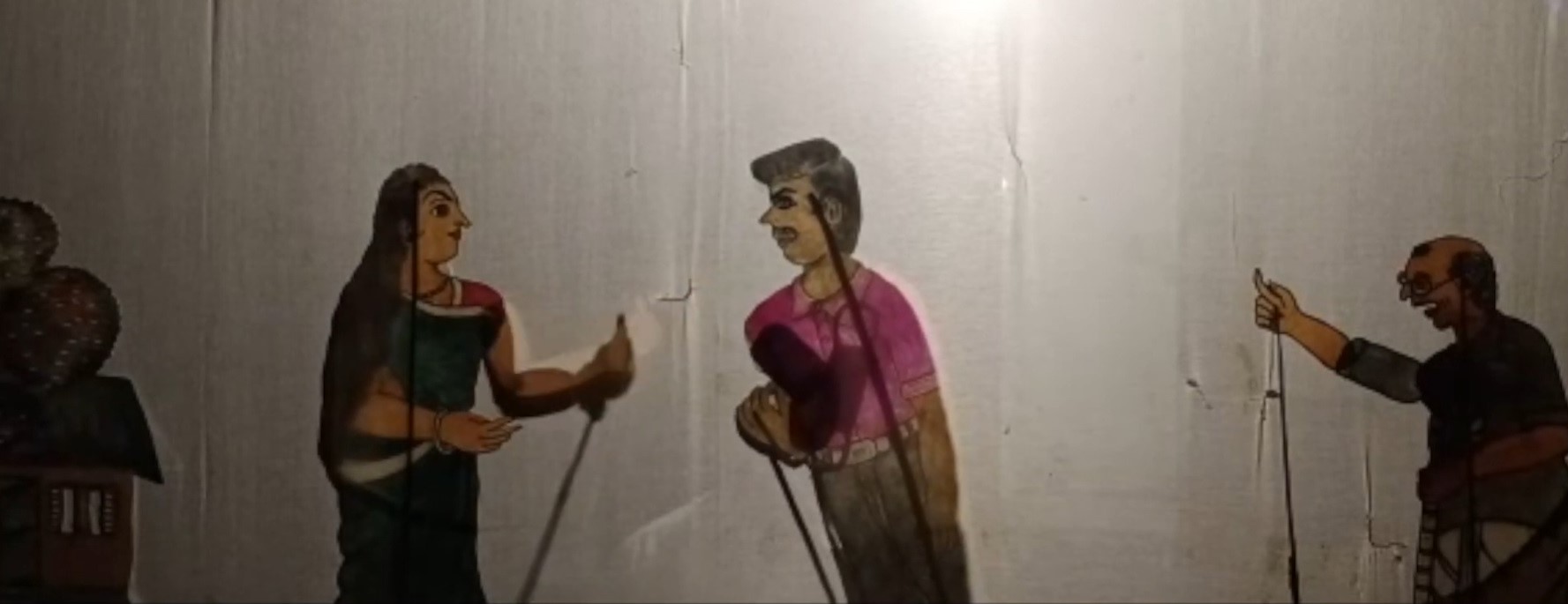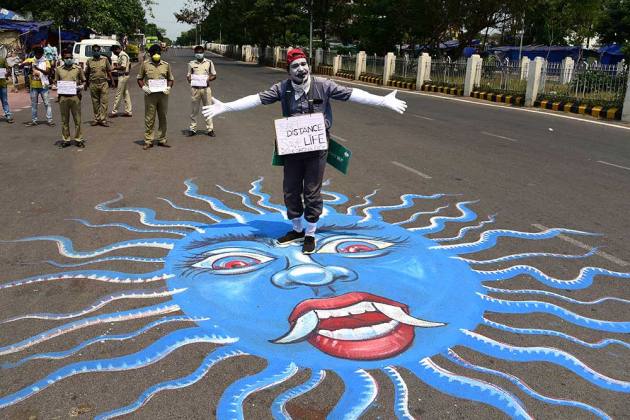Nukkad Naatak: The awareness vehicle for the streets
Street play, the art form most impacted by the pandemic, undergoes a virtual makeover, but its role as a driver for public awareness remains unchanged
Godhashri Srinivasan
One morning, standing next to a large demon-faced virus rangoli and facing an audience standing within demarcated circles, Raavan asked the people of Coimbatore why they were outside. As an ambulance hollered past ominously, and a black, horned figure circled around the rangoli, he asked, ‘Don’t you have kids and old people back home?’. In Jalpaiguri, West Bengal, Gairkata tea estate’s workers and tribal women became doctors, police, and even a particular virus in a play, written by Maxima Toppo, that was meant to educate people about the possibility of infection after the laborers returned. In Mid-March, when the pandemic was just at India’s doorstep, Chhattisgarh’s Sector 17A, saw a theatre group come on stage to discuss the topics of the day. ‘Pollution!’, an actor said; ‘Beti Padhao Beti Bhachao’, said another; and a third actor simply coughed. Puppets danced around on the stage of Kalaivanan, a veteran ‘Bommalattam’ artist, whose family of four puppets bust myths about new medicines and stress social distancing. In Bhubaneshwar, a man with a face painted white and lively eyes, adorned with cautionary boards on hand-washing reminders blows his whistle at two people standing a bit too close. Chita Ranjan Satpathy is just one among the many artists using theatre and mime to educate the masses about the pandemic.

Nukkad Naatak, which literally translates to street play, has been the vehicle for governments, NGOs, individuals like Satpathy and village women like Maxima Toppo to take the message to the masses. Embracing the recent shift to the virtual sphere, is the theatre group Swatantra, whose recent online street play Sheher-e-Naqaab, sees the virus as a character of its own. ‘I have had many friends’, it says. ‘like the swine flu, Ebola, Nipah and Dengue. I have captured cities, countries and now the world. You cannot take me lightly. There will be consequences if you do’. Accurately emulating the street, with black screens, few musical instruments and natural, unamplified voices, the online play speaks of our current state of affairs through scenes that depict rumour mongering, virtual weddings and the fight to save humanity and human lives.
Abhijeet Choudhary, the founder-director of the Swatantra Theatre Group says that the street play is the art form that is the most impacted by the pandemic. It is ‘the form in which human interaction is a base and the result’. He admits that he misses the live engagement the actors get from performing on the streets. ‘The [online] play will be visible only to those who click the button to see it… it reaches only those who choose to see it. A passer-by, an onlooker and an all organic audience gathering out of curiosity are crucial’, he says. But the street play’s online counterpart still persists. ‘[the lockdown] can be used to experiment the usage of different technologies and their impact and for researching about the subjects that one may intend to bring up in the future’, says Choudhary who believes that even after the pandemic, the future of street plays, which have been one of the major drivers for public awareness, would remain unchanged. As he put it best, ‘[the return to normality] might take longer than expected but the social nature of human beings cannot be tampered’.

